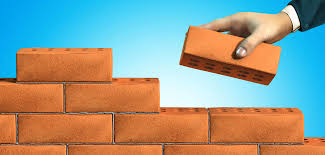Just days after finance chiefs of the world's top 20 economies dropped their pledge for open trade, the European Central Bank reiterated the importance of open trade policy and said in a study that a country's trade deficit could get increased rather than decreased by any form of protectionist trade policies.
It may be recalled that a series of protectionist measures, such as new import duties, have been proposed by Donald Trump's U.S. administration who is seeking to reduce a large trade deficit of the country’s economy.
The economies of Germany and China both sell more goods to the United States than they buy from it and both the counties are key partners, and the White House also wants to revisit some of its trade relationships which includes those with such key partners.
Indeed, the United States has already raised fears that global trade will take a hit because it has refused to reaffirm its pledge for open and free trade at the G20 meeting last weekend, has pulled out of the Trans-Pacific trade deal and asked for a review of the North American Free Trade Agreement.
But despite these strong measures by the U.S., the opposite recipe is needed, believes the authors of the ECB paper -- published in its regular Economic Bulletin.
Firms are helped in keeping their cutting edge over international rivals and lifting the country's exports by improved competitiveness through the process of liberalizing global trade and importing cheaper intermediate goods, they said.
"Adopting policies that facilitate innovation and reduce protectionist barriers may help to improve an economy's competitiveness," the ECB paper said. "Multilateral initiatives aimed at trade and financial liberalization may also reduce an economy's external imbalances."
"Participating in global value chains may give an economy a temporary competitive edge that results –- in order to smooth consumption over time –- in a rise in its current account balance," the ECB added.
Additionally, the U.S. administration has claimed that countries running big current account surpluses may be using unfair trade practices and the ECB study also appeared to dismiss that claim by the U.S.
Instead, as countries expect others to liberalize trade to improve their own efficiency and restore competitiveness, they will view their competitive edge as temporary, behaving with caution, the study argued.
"As a consequence, in order to smooth consumption over time, part of the income gain in the domestic economy will be saved, which improves the current account balance," the ECB added.
The current account balance is likely to deteriorate as consumption and imports rise to match what income levels if the advantage is perceived as permanent, it added.
(Source:www.reuters.com)
It may be recalled that a series of protectionist measures, such as new import duties, have been proposed by Donald Trump's U.S. administration who is seeking to reduce a large trade deficit of the country’s economy.
The economies of Germany and China both sell more goods to the United States than they buy from it and both the counties are key partners, and the White House also wants to revisit some of its trade relationships which includes those with such key partners.
Indeed, the United States has already raised fears that global trade will take a hit because it has refused to reaffirm its pledge for open and free trade at the G20 meeting last weekend, has pulled out of the Trans-Pacific trade deal and asked for a review of the North American Free Trade Agreement.
But despite these strong measures by the U.S., the opposite recipe is needed, believes the authors of the ECB paper -- published in its regular Economic Bulletin.
Firms are helped in keeping their cutting edge over international rivals and lifting the country's exports by improved competitiveness through the process of liberalizing global trade and importing cheaper intermediate goods, they said.
"Adopting policies that facilitate innovation and reduce protectionist barriers may help to improve an economy's competitiveness," the ECB paper said. "Multilateral initiatives aimed at trade and financial liberalization may also reduce an economy's external imbalances."
"Participating in global value chains may give an economy a temporary competitive edge that results –- in order to smooth consumption over time –- in a rise in its current account balance," the ECB added.
Additionally, the U.S. administration has claimed that countries running big current account surpluses may be using unfair trade practices and the ECB study also appeared to dismiss that claim by the U.S.
Instead, as countries expect others to liberalize trade to improve their own efficiency and restore competitiveness, they will view their competitive edge as temporary, behaving with caution, the study argued.
"As a consequence, in order to smooth consumption over time, part of the income gain in the domestic economy will be saved, which improves the current account balance," the ECB added.
The current account balance is likely to deteriorate as consumption and imports rise to match what income levels if the advantage is perceived as permanent, it added.
(Source:www.reuters.com)






